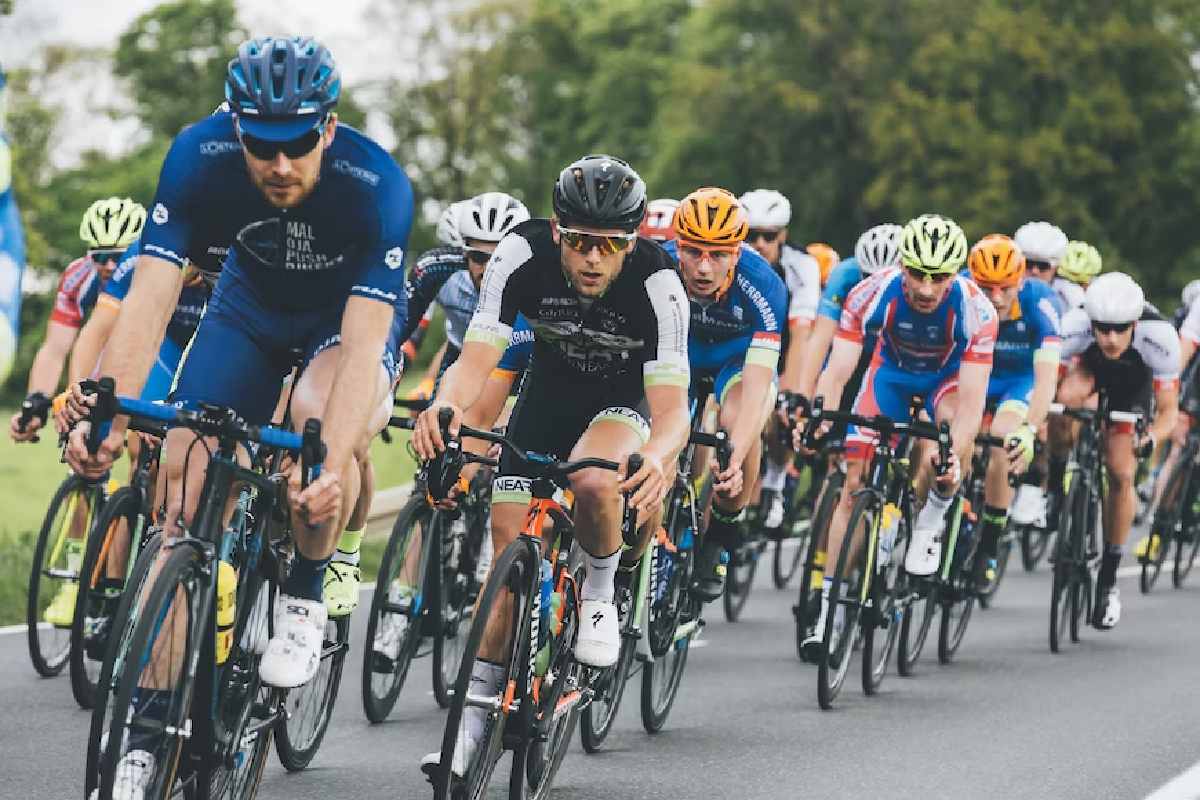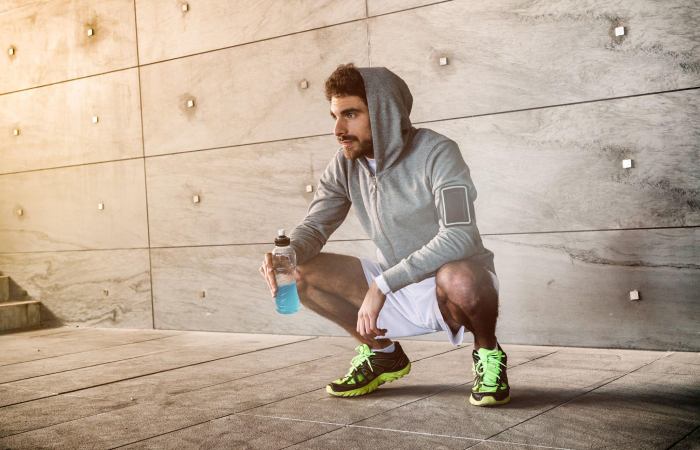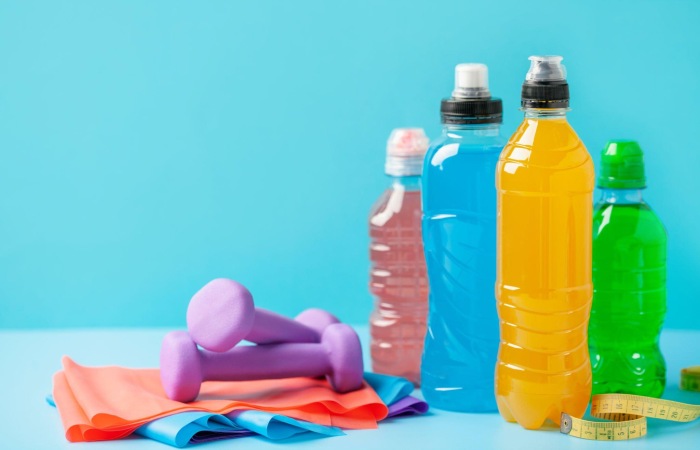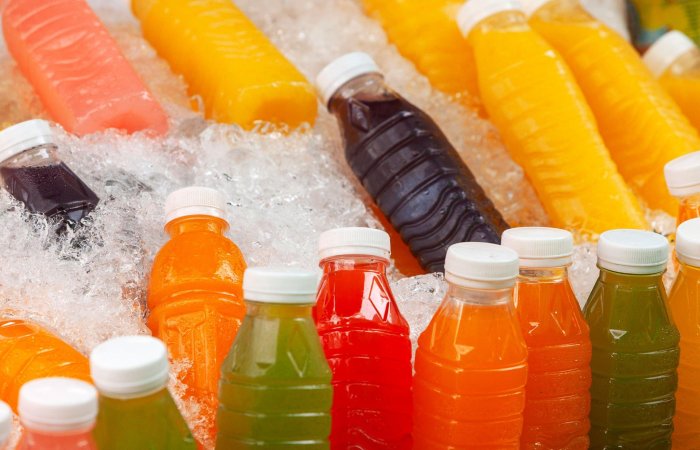At least not when you are a person who only performs the WHO recommendation of 150 minutes of moderate aerobic physical activity a week or 75 minutes of vigorous exercise. It is not that we want to discourage you,. Still, by doing this, you are not yet an athlete as such, and these energy drinks (which do more damage than you think) are specifically formulated for those who are, that is, usually high-performance athletes who do require a replacement of liquids and electrolytes for the same demand that their exercise demands.
What do sports drinks usually contain?
According to the Harvard University TH CHAN University of Community Health, this type of drink contains sugar (which can become addictive), liquid, electrolytes: sodium, potassium, magnesium, calcium, and even vitamins such as those of the B complex (beware, nothing! have to do with energy drinks!). Typically carbs come in the form of glucose, and fructose (from corn syrup); others have no sugars or have other low-calorie sweeteners or sweeteners.
Energy Drink bebidaSrdjan Radevic / EyeEm
How do I know if I should drink these drinks?
If you exercise “intensely” for more than an hour, there’s no problem; come on! If not, consider that if you drink them, it will be no different than any other sugary drink you choose, very sugary in fact!!!
How many types of sports drinks are there?
Usually the classification is given by the concentration of solutes they contain, and from there, we start:
Hypotonic Who is it? Short and long-distance runners, team games, and and most athletes themselves.
Hypertonic:
These are loaded with everything, so you require a greater demand for electrolytes and not so much liquid. And they usually add a nutrient that the other two do not: “Protein”. They are commonly used for recovery or post-workout. >8g of sugars/100ml
Who is it?
Ultramarathon runners, training or competitions in very hot or humid climates, high-performance athletes.
They come with a lower concentration of solutes than those in the blood (natural water, for example) and are optimal when fluid from exercise is lost but not electrolytes. <4g of sugars/100 ml
Who is it?
Gymnasts, some types of yoga, Olympic lifting.
Also Read: are sports extracurricular activities
Isotonic:
With sugars and minerals and a similar osmotic ratio to blood (285 to 295 mOsm/kg), its absorption is rapid. Suitable for you if you suffer from cramps, fatigue or need to recover soon. 4-8 g of sugars/100 ml.
Who is it?
Short and long-distance runners, team games, and most athletes themselves.
Hypertonic:
These are loaded with everything, so you require a greater demand for electrolytes and not so much liquid. And they usually add a nutrient that the other two do not: “Protein”. They are commonly used for recovery or post-workout. >8g of sugars/100ml
Who is it?
Ultramarathon runners, training or competitions in very hot or humid climates, high-performance athletes.
Commercial sports and hydration drinks
Hydrating Drinks Without Calories (Hypotonic)
- Serum X with 8 ions: No calories or added sugars. It has 8 ingredients (electrolytes/ions): sodium, potassium, calcium, citrates, zinc, chloride, lactate and magnesium. Contains stevia as a sweetener 49 mg of sodium in 100 ml.
- Gatorade Active Water: Zero calories, no sugar. It has vitamin C, niacin, vitamin B6 and pantothenic acid. A mixture of sucralose and acesulfame K as sweeteners and 47 mg of sodium in 100 ml.
- Powerade ION4 Zero: No sugar, carbs, or calories. It provides sodium (45mg/100ml), potassium, calcium, magnesium, and vitamins such as B3, B6 and B12. With sucralose and acesulfame K to sweeten.
Sports Drinks With Calories (Isotonic)
- Powerade ION4: Provides 6.26g of sugars (sucrose and high fructose syrup), 25 calories and 26-28mg of sodium in 100ml (only the blackberry has 48g in 100ml). With calcium, magnesium and potassium, as well as vitamins B3, B6 and B12
- Jumex Sport: It has 45 mg of sodium in 100 ml, in addition to potassium and calcium. It provides 24 calories in 100 ml, as sugars include fructose, glucose and sucrose, and being fortified with L-Carnitine.
- Gatorade Perform: The traditional one with 24 calories, 6g of sugars and 47mg of sodium in 100 ml. It has sugar, dextrose, potassium (14mg/100ml) and no vitamins.
- Gatorade Fierce: It has sugar, calories, sodium and potassium practically the same as the previous one. But this one has high fructose corn syrup in addition to sucrose.
Sports drink with calories, and it is not precisely a shake (Hypertonic)
- Gatorade Prime Sports Fuel: Interestingly, it has 85 calories in 100ml from 20g of carbs, of which 19 are sugars. It has 97mg of sodium in 100ml and vitamins such as niacin, B6 and pantothenic acid.
Athletes also use oral electrolytes, known as “Serums”, to hydrate.
- Electrolit _: Sterilized electrolyte solution, without preservatives, provides 57mg of sodium and 18.6 calories in 100 ml. It offers lactate, magnesium, calcium and potassium, without preservatives, 5g of glucose, and acesulfame K as a sweetener.
- Source: Rehydrating solution, with benzoic as a preservative, 5g of glucose and 18.7 calories in 100ml; it also has sodium (55mg/100ml), calcium, magnesium, potassium and lactate.
- Pedialyte 30: Oral solution for heat dehydration. It has acesulfame K and 1.5g of glucose, contributing 6 calories in 100 ml. Without preservatives, only 176 mg/100 ml of sodium, potassium and zinc.
Also Read: How To Maximize Company Tax Deductions




